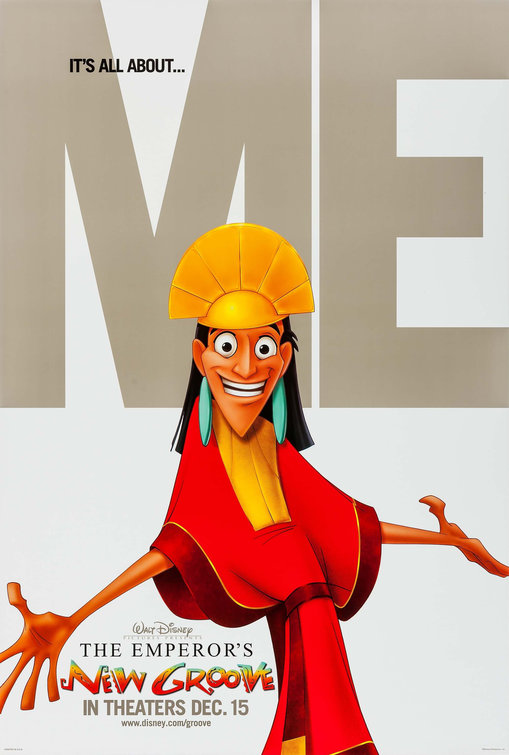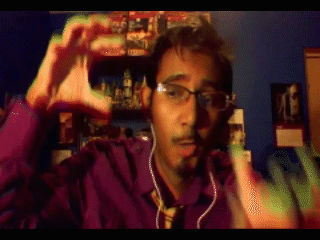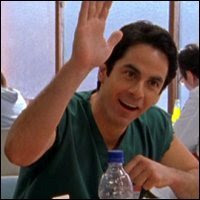Before I address the original post, I want to say that my responses mostly stem from these bullet points:
I find it odd that so many critics jumped on comparing this to "The Lion King." That was not my first thought at all. In fact, my immediate thought is that this film shares a lot with 2007's "Enchanted." Both films are something of a subversion of the Disney formula, acknowledging its faults and working to flip that fixed narrative on its head. "Frozen" obviously takes things a lot farther than "Enchanted," and with more of a loving nod than an air of parody. But up until the beginning of the final act, this film goes to a LOT of effort to make you think you're watching any other Disney movie.
The other film I'm reminded of is "Brave," in that changes were obviously made near the end of production; but while "Brave" shows it with a notably patchwork design (I still like the film, despite this), "Frozen" seems to smooth out the creases a bit better, moving at a brisk, exciting pace, keeping all of its characters at least relevant and being considerably less confused in what it's trying to communicate.
This film is a loose adaptation of Hans Christian Andersen's The Snow Queen and, while it takes many liberties with the source material, it tries to reference it as much as it's able to. So where elements are at their shakiest are often when they're meant to be references to the source material.
With those in mind . . .
Fix One
I'd say the more ideal fix here, as suggested in a later post, would be for Anna to have a negative reaction upon her true memories somehow being accessed (be it Elsa admitting it, the trolls fixing her memories, etc.), which is only amplified by Elsa freezing her heart. This would make her sacrifice for Elsa all the more meaningful (although I still feel it carries plenty of weight with how the film builds the climax). But I like Anna's naivety and unquestioning trust in regards to her sister because it better explains her hasty relationship with Hans.
In an early draft, Elsa and Anna have a (very decidedly anti-princess) bond that's much more prominent throughout the film, but Anna becomes jealous of Elsa due to their parents doting on Elsa out of concern. Anna develops an inferiority complex that causes her to lash out when she confronts Elsa in her ice castle. Listening to the songs that were developed for this version, I can see why this was scrapped. The characters just weren't likeable or worth rooting for. So, because of the way that developed, I can see why we got the Elsa and Anna we did.
Fix Two
You're right on the mark with the intention of the song. The problem Disney faced with "Frozen" is that Elsa in the source material is the villain, and a poorly developed one at that; she's essentially a Slender Man-like entity, and this lack of character proved challenging even to Walt Disney himself when he attempted to adapt the story. She was changed to something of an anti-hero to better suit the story and "Let It Go" is a result of that. In fact, "Let It Go" inspired a lot of changes in Elsa's character when it was proposed for the film.
Up to that point, Elsa was a more extreme anti-hero, akin to what your fix-up suggests she should have been (and, clearly, this was not to the liking of the production team); the alternate ending of the scene where Anna and Kristoff are chased out of Elsa's castle by Marshmallow has Elsa taking things further by conjuring a giant snowflake which she channels into herself in order to unleash a blizzard, ensuring her sister keeps away (I'm assuming this was cut due to the blizzard being saved for the finale). In another draft, she created a snowman army (which Olaf was intended to be a reject of) that attacked Arandelle when they became sentient beyond Elsa's control. I am also fairly sure there had to be a draft where Elsa purposefully put Arandelle into the eternal winter. I think, really, that last concept is all that needed to change to make her transformation more layered; putting Arandelle into winter on purpose would have been a perfect depiction of Elsa misplacing her anger and misusing her powers out of fear. Of course, this requires alterations to Anna's naive view of Elsa (she certainly wouldn't say "She would never hurt me" after that), although as you suggested, there are ways to alter her development without changing that naivety.
As to Elsa not really "letting go" of her fear and anxiety during the song; isn't that the idea? Elsa is, at this point, mistaken in thinking that letting go means letting her powers run loose as she sees fit. She has yet to understand what letting go truly is, or how to do it, which is what she's setup to learn in the film. The song is empowering, but kind of in the way that "Defying Gravity" is in "Wicked" (it is, after all, essentially the same song); the character has power now, which could be positive, but is at risk for being unbridled with it (which Elsa later shows when she nearly kills the two guards attacking her, doing so with notable dramatics).
And regarding the issues with Elsa's powers, nearly every thing she is capable of are references to the Snow Queen's abilities in the original story. The text mentions her being able to do nearly everything the movie shows her doing at some point (yes, even the clothes . . . including the skates); in fact, I'd say that this is the element of the story adapted with the most fidelity. Really, the only one that bothers me is that she can create life, and only because the script makes a point of noting this as a rather big deal (with a notable reaction of shock from Elsa upon the realization) only to drop it later (it only ends up foreshadowing her creation of Marshmallow).
Fix Three
This is heresy. I can't agree with this, especially considering (as Dorkman pointed out) that Elsa is essentially Elphaba from "Wicked." It's pretty choice casting, and I thought Menzel's performance was very clear; she played Elsa as refined, nervous and muted. And the physicality in her voice acting shines through where Elsa is best animated (my favorite moment being her first chat with Anna as adults; a lot of Idina shines through in this scene). It would've been great to give her more material (as Elsa is just as interesting, if not more so, than Anna), but I never thought she left Elsa totally flat.
Fix Four
I only really thought the most egregious example of a character going off model was where you mentioned, in "Let It Go" when Elsa is animated somewhat inconsistently. Otherwise, I had no complaints; I was initially displeased at the character models when pictures were first released (noting, as you did, their similarity to character models in "Tangled"), and if it hadn't been for the snow needing to feel tangible, this would have been perfectly good as a traditionally animated film. But really, I found myself pleasantly surprised by the character animation and how much I could see the actors' personalities shining through them.
Fix Five
The trolls are, once again, a reference to the original story; interestingly enough, in Andersen's version, they are a literal representation of the devil, creating a magic mirror that amplifies ugliness, which shatters into millions of pieces and gets in people's eyes and hearts (which was adapted into Elsa's ability to freeze heads and hearts). I agree that they are sort of a bizarre story element here, although their presence of magic somewhat explains why Elsa's family doesn't ever ask why she has powers or where they came from (apparently this alternate reality of Norway is content to live alongside magic, although is certainly wary of it). Otherwise, if we go with the idea that this is meant to be an "Enchanted"-like element, the trolls are meant to serve as a traditional "wise character" that, in this instance, end up misleading the audience (their number almost exactly parallels Mama Odie's song in "The Princess and the Frog," meant to trick you into thinking that Anna does, in fact, need to kiss someone). But I agree, they're an awkward fit. I myself thought it would've made sense for Elsa's parents to have the trolls train her in her magic. There's also quite the plot hole when they never mention having treated Anna before.
Fix Six
I somewhat agree with this, although I've grown to have a begrudging affection for the lyric, as it fits with the way they built Anna; like Rapunzel, she's essentially a modern-day teenager dropped into a fairy tale setting. I do think it's funny, though, when people claim the songs from both princesses have timeless qualities; the way the two phrase things (e.g. "It's, like, 7:15" and "I know it is totally crazy") are not exactly timeless ways of speaking . . . they'll date those songs pretty fast, actually. But screw it, I'm singing them daily, so I can't really criticize.
Fix Seven
I'd reverse this and say up the Duke's part. As you said, he's meant to be a red herring. More. More, I say! Although perhaps less . . . Alan Tudyk-y? He was a bit too funny to be taken as a serious red herring (although his casting in itself was a red herring, one which I initially fell for). Make him more sinister and you've got yourself an honest-to-goodness shocker when it's revealed that Hans is the mastermind.
Fix Eight
A lot of stage musicals tend to speed towards a climax by act two, favoring dialogue over songs. Although a song from the entire cast during the blizzard sequence would've been pretty awesome, I must admit. And there definitely should've been a vocal reprise, with altered lyrics, of "Do You Want to Build a Snowman" to cement Anna and Elsa's renewed relationship.
Despite all of these "problems," I can't help but have an overwhelming affection for "Frozen," to the point that I'm willing to excuse its flaws. It's one of those movies where, when people critically pan it for its faults, I kind of shrug and go, "Eh, they don't really bother me." Which, for me, is a testament to the movie, as there are not a lot of films that make me do that. For me, "Frozen" has so many good things going for it that its flaws are kind of overshadowed by its successes. And considering I hated "Wreck-It Ralph," that really is saying something; I'm just sitting here eagerly awaiting Jennifer Lee's next move. The ball is in her court.

















 I've pretty much been gabbing about it non-stop for the last month.
I've pretty much been gabbing about it non-stop for the last month. The trailer definitely captured my interest, though. More so than the plot summary they gave us on the set.
The trailer definitely captured my interest, though. More so than the plot summary they gave us on the set.